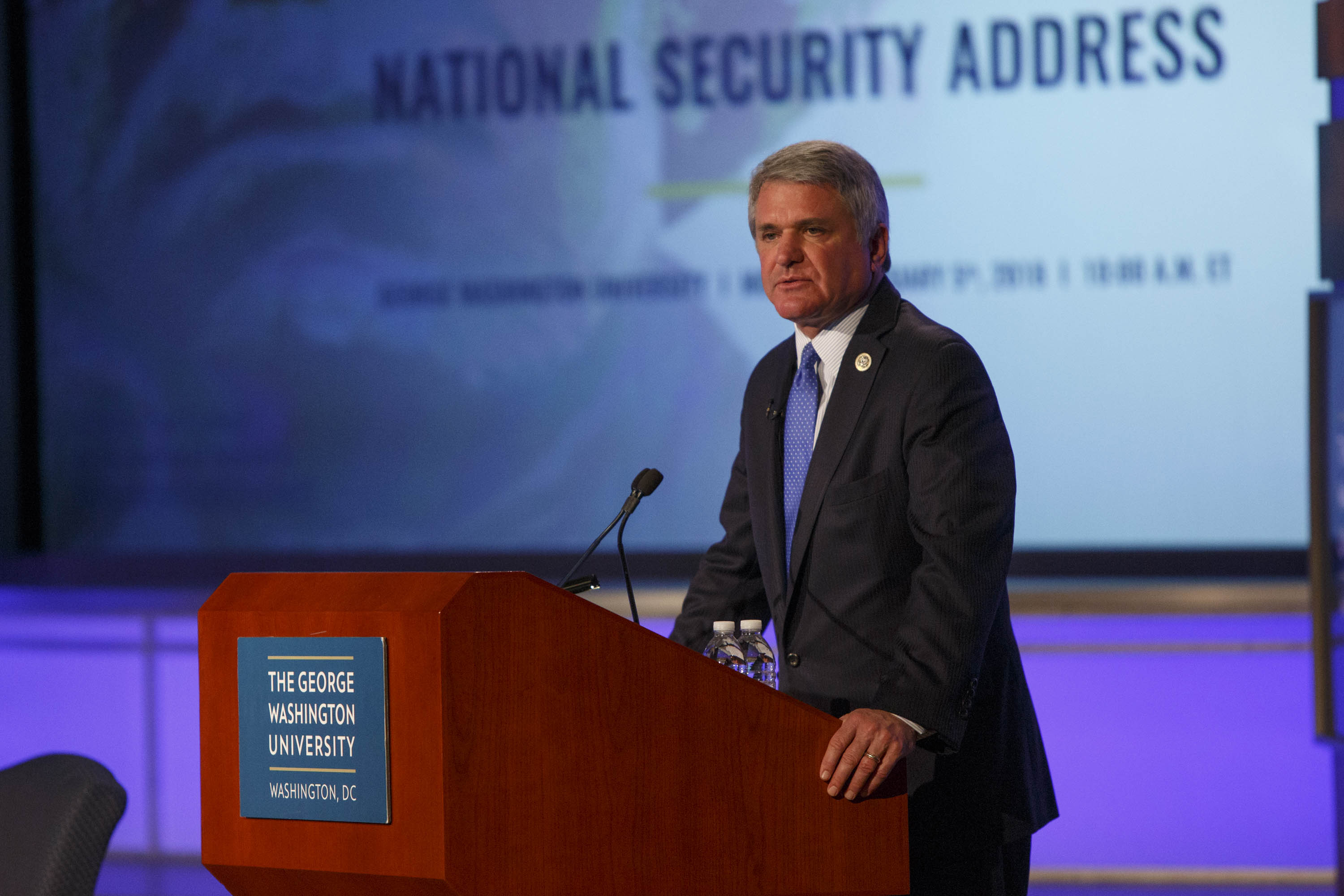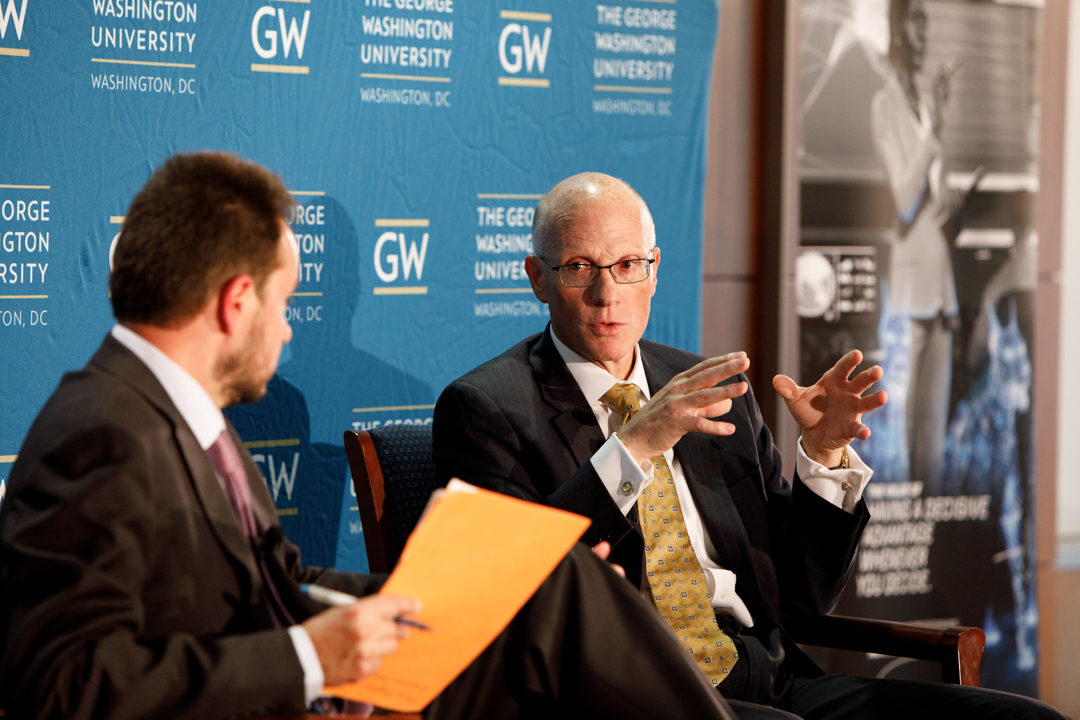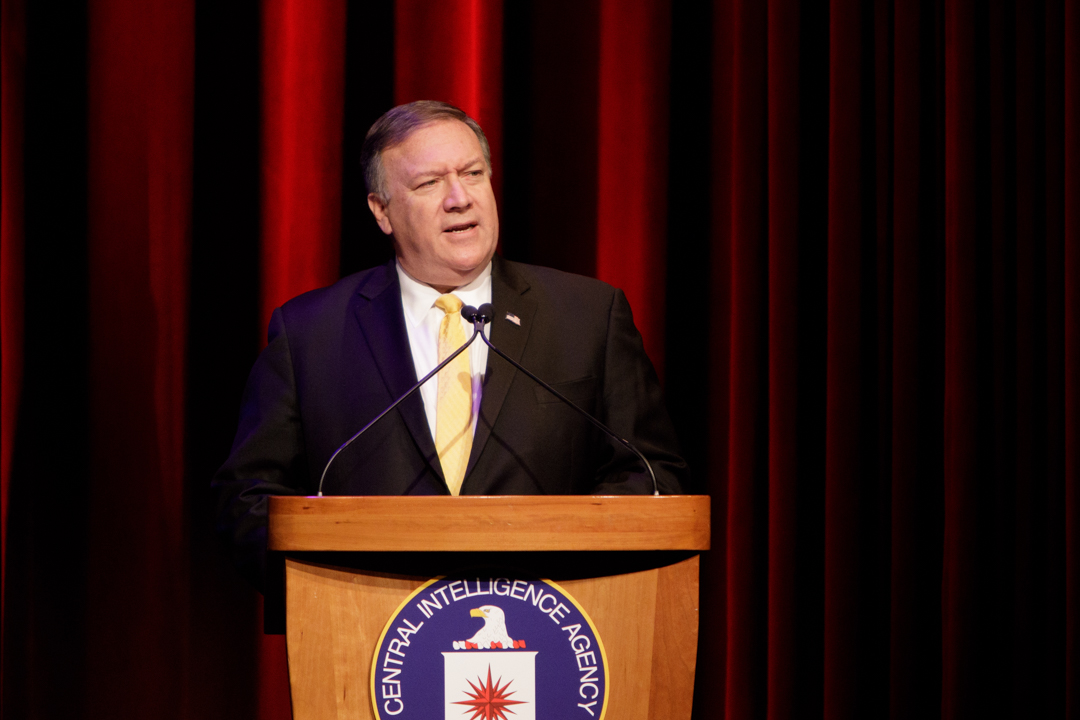By Briahnna Brown
Homeland Security Committee Chair Rep. Michael McCaul (R-Texas) highlighted problems facing the United States during his “State of National Security Address” Monday, including “vulnerabilities” in the immigration system and ongoing threats from terrorist groups.
Mr. McCaul called for improving border security with a biometric entry-exit system to help address visa overstays, replacing the visa lottery and chain migration policies with merit-based policy and granting a three-year, renewable legal status to Deferred Action for Childhood Arrivals (DACA) recipients.
The same proposals are included in legislation introduced in the House in January 2018.
"I think for too long [the Southern border] has been an open door, which has had transnational criminal organizations like MS-13, dangerous opioids and drugs coming across, poisonous narcotics, trafficked women and children have poured into our country, destroying lives, shattering families and ravaging our communities,” Mr. McCaul said.
He delivered his address to members of the George Washington University community at Jack Morton Auditorium. The event was hosted by the GW Center for Cyber and Homeland Security.
In addition to changing immigration policy, the congressman also discussed terrorist groups such as ISIS and Al Qaeda, describing them as a “disturbing enemy that does not sleep.”
He said that since 2013 there have been 150 jihadist cases in the United States and 179 ISIS-linked incidents in Europe, and he blamed instability in Middle Eastern and other countries as the cause for the spread of terrorist ideology.
"These stats are really alarming when you look at them,” Mr. McCaul said. “They're a demonstration of why we must remain vigilant in our quest to expel violent Islamist extremism from the Earth by destroying the roots from which it came."
Mr. McCaul also described North Korea’s ability to expand its influence and to successfully utilize nuclear weapons as “unacceptable” and called for clear and decisive sanctions against North Korea. He also described the Iran nuclear deal as “unfortunate.”

Frank Cilluffo (l), director of the GW Center for Cyber and Homeland Security, moderates a panel discussion on national security with Rep. John Katko (R-N.Y.), Rep. Will Hurd (R-Texas) and Rep. Mike Gallagher (R-Wis.)
To improve aviation security, Mr. McCaul advocated for computed tomography machines at U.S. airports, which he said would provide clearer images for Transportation Safety Administration screeners to detect devices such as explosives hidden within laptops. Mr. McCaul said that aviation is still a key target for ISIS and other terrorist groups.
"We must establish closer relations with our allies…and enforce cyber commitments with other countries,” Mr. McCaul said.
Mr. McCaul’s keynote address was followed by a panel discussion with other congressional Republicans. Rep. John Katko (R-N.Y.), Rep. Will Hurd (R-Texas) and Rep. Mike Gallagher (R-Wis.). The three discussed ways that the United States could adapt to the changing landscape of cyber terrorism.
Mr. Hurd compared terrorism to the influenza virus, saying that it will always be around and may continue to grow, but there are preventative measures that can be taken against it.
"I think when it comes to national security strategy, a missing piece is that we're still focusing on terrorism, but our allies are getting more evolved in handling this issue because you have to look at some of the root causes that has made terrorism show its ugly head," Mr. Hurd said.




